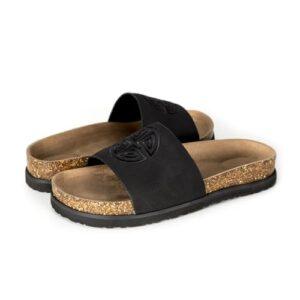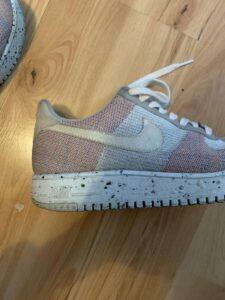Have you ever wondered if it’s safe or okay to sleep with a necklace on? You might think it’s no big deal, but what if your favorite necklace could cause discomfort or even harm while you sleep?
Whether it’s a delicate chain or a bold statement piece, wearing jewelry to bed raises some important questions. You’ll discover the real risks and benefits of sleeping with a necklace on—and what you should know to protect yourself and your jewelry.
Keep reading to find out if your necklace should stay on or come off before you hit the pillow.
Risks Of Sleeping With A Necklace
Wearing a necklace to bed might seem harmless. Yet, it carries risks that many overlook. These dangers affect your skin, jewelry, safety, and even sleep quality. Understanding these risks helps you make better choices about bedtime accessories.
Skin Irritation And Allergies
Necklaces can trap sweat and dirt against your skin. This may cause redness, itching, or rashes. Some metals trigger allergic reactions in sensitive skin. Sleeping with a necklace on can worsen these issues overnight. Your skin needs to breathe while you rest.
Necklace Breakage And Damage
Necklaces are delicate and can break easily during sleep. Tossing and turning may pull or tangle the chain. This can cause sudden breaks or damage to the clasp. Repairing or replacing jewelry costs time and money. Sleeping without a necklace helps keep it safe.
Strangulation And Safety Hazards
Necklaces pose a strangulation risk while sleeping. Chains can catch on bedding or objects. This can tighten around your neck and cause harm. Children and restless sleepers face higher dangers. Removing necklaces before bed reduces safety hazards significantly.
Impact On Sleep Quality
Wearing a necklace might disturb your comfort at night. The metal may press into your skin uncomfortably. This can cause you to wake or toss in bed. Poor sleep affects mood and energy the next day. Sleeping without jewelry promotes better rest and relaxation.

Credit: www.jewelleryhat.com
Types Of Necklaces To Avoid At Night
Not all necklaces are safe or comfortable to wear during sleep. Some types can cause discomfort or even injury. Knowing which necklaces to avoid at night helps protect your skin and neck. It also prevents damage to your jewelry.
Delicate Chains
Delicate chains are thin and fragile. They can easily break or tangle while you move in your sleep. This can cause skin irritation or even scratches. These chains offer little support and can get caught on bedding.
Heavy Or Chunky Necklaces
Heavy or chunky necklaces press hard on your neck. This pressure can cause discomfort or leave marks on your skin. They may also restrict your movement during sleep. Such necklaces increase the risk of neck strain or pain.
Necklaces With Sharp Edges
Necklaces that have sharp edges or points can hurt your skin. They might cause scratches or small cuts at night. These edges can catch on your clothes or hair. Sleeping with them on raises the chance of injury.
Beaded And Charm Necklaces
Beaded and charm necklaces have many small parts. These parts can press unevenly against your skin. They may cause discomfort or irritation during sleep. Sometimes, beads or charms can break or fall off easily.
Safe Necklace Options For Sleeping
Choosing safe necklace options for sleeping helps protect your skin and avoid damage. Some necklaces are better suited for wearing at night. They stay comfortable and reduce risks like tangling or choking. Picking the right necklace lets you rest without worry.
Soft Fabric Or Cord Necklaces
Necklaces made from soft fabric or cord are gentle on the skin. They do not pinch or irritate while you sleep. These materials are flexible and less likely to break. Soft necklaces reduce the chance of discomfort or injury during sleep.
Breakaway Clasps
Breakaway clasps open easily under pressure. They prevent choking or strangulation if the necklace catches on something. This safety feature is important for night use. Necklaces with breakaway clasps offer peace of mind while sleeping.
Short And Lightweight Designs
Short and lightweight necklaces are less likely to tangle. They stay close to the neck without moving around much. These designs avoid pulling or tugging during sleep. Wearing light necklaces helps maintain comfort through the night.

Credit: atoleajewelry.com
Tips For Wearing Necklaces At Night
Wearing necklaces at night can feel nice or cause discomfort. Small habits help you wear them safely and comfortably. These tips make nightwear easier and protect your jewelry.
Follow these simple steps to enjoy your necklace while you sleep or rest.
Check For Comfort And Fit
Make sure your necklace is not too tight or heavy. Loose chains reduce skin irritation. Lightweight pieces feel better on your neck. Avoid sharp or rough edges that can scratch your skin.
Remove Before Physical Activity
Take off your necklace before exercise or any active movement. Sweat can cause metal to tarnish or irritate your skin. Necklaces may get caught or break during physical activities. Removing them keeps both you and your jewelry safe.
Keep Necklaces Clean And Dry
Clean your necklace regularly to remove dirt and oils. Use mild soap and warm water for best results. Dry completely before wearing to avoid skin problems. Moisture can cause damage and dull the shine of your jewelry.
Store Necklaces Properly
Place necklaces in a soft pouch or jewelry box at night. Avoid tossing them in drawers where they can tangle or break. Separate different pieces to keep them from scratching each other. Proper storage extends the life of your necklaces.
Alternatives To Wearing Necklaces While Sleeping
Wearing necklaces while sleeping can sometimes cause discomfort or damage. Many people want to keep their jewelry close without the risks. There are simple and safe alternatives to wearing necklaces at night. These options keep your style and protect your jewelry.
Using Bracelet Or Anklet Accessories
Bracelets and anklets offer a great way to wear jewelry at night. They are less likely to tangle or cause skin irritation. Soft, adjustable bracelets made from fabric or leather work best. Anklets add a touch of charm without interfering with sleep. Both options let you enjoy accessories without necklace worries.
Placing Jewelry Near The Bed
Keeping your necklace close by but off your skin is smart. Use a small dish or jewelry tray on your nightstand. This keeps your necklace safe and easy to reach. It also prevents damage from tossing and turning. This way, your jewelry stays nearby without any discomfort.
Incorporating Jewelry Into Sleepwear
Some sleepwear designs include built-in jewelry or decorative elements. Small pendants or charms sewn onto pajamas add sparkle without bulk. Choose soft fabrics to avoid irritation. This method keeps jewelry part of your nighttime routine safely. It blends comfort with style in a clever way.

Credit: www.reddit.com
Frequently Asked Questions
Can Sleeping With A Necklace Cause Skin Irritation?
Yes, wearing a necklace while sleeping can irritate your skin. Friction and sweat may cause redness or rashes. Removing it at night helps prevent discomfort and skin issues.
Is It Safe To Sleep With A Necklace On?
Sleeping with a necklace on is generally unsafe. It can get tangled, break, or cause choking hazards. Removing jewelry before bed is safer and recommended.
Can Necklaces Damage During Sleep?
Yes, necklaces can get damaged while sleeping. Movement may cause tangling or breakage. Delicate pieces are especially vulnerable, so it’s best to remove them before sleeping.
Does Sleeping With A Necklace Affect Sleep Quality?
Wearing a necklace might affect sleep quality by causing discomfort or irritation. Removing jewelry can improve comfort and promote better rest.
Conclusion
Sleeping with a necklace can be risky for comfort and safety. It might tangle or break during sleep. Necklaces can also irritate your skin or cause scratches. Choosing soft, lightweight chains reduces discomfort. Removing jewelry before bed keeps you safe and comfortable.
Think about your necklace type and sleeping habits. Prioritize rest quality over wearing jewelry at night. Your health and peace matter most for good sleep.

Madison Clark is a footwear expert and the voice behind MyStyleGrid.com. She specializes in honest shoe reviews, style tips, and practical guides to help readers find the perfect pair for any occasion. With years of experience in blogging and content creation, Madison makes footwear knowledge simple, stylish, and easy to follow.






